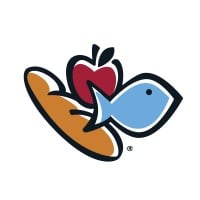
Harris Teeter Company Cyber Security Posture
harristeeter.comFounded in 1960 in North Carolina, Harris Teeter has been enriching the lives of our customers and our communities for decades. Today, Harris Teeter employs 36,000 valued associates and operates more than 250 stores and 70 fuel centers in seven states and the District of Columbia. In addition to our retail stores, we operate grocery, frozen food and perishable distribution centers in Greensboro and Indian Trail, North Carolina. From fresh, high-quality products to innovative offerings, Harris Teeter delivers an exceptional shopping experience at a great value, which is why Harris Teeter is proud to be ‘your neighborhood market.’ Harris Teeter is committed to not only supporting its communities by donating millions in food and funds to non-profits each year, but we also support our valued associates by offering comprehensive benefits, career growth opportunities and an incredible work culture. This commitment demonstrates Harris Teeter’s purpose to Enrich Lives: One Meal, One Family, One Associate and One Community at a time. Harris Teeter’s History: In 1936, W.T. Harris borrowed $1,500 to open the first Harris Food Store in Charlotte, North Carolina. The store was founded on three principles: high-quality products, clean stores and superior customer service. Harris was considered a pioneer of the grocery industry and opened the first supermarket that featured air-conditioning and stayed open until 9 p.m. on Friday nights. Just a few years later, Willis L. Teeter and his brother, Paul, opened their first Teeter’s Food Mart in Mooresville, North Carolina. On February 1, 1960, Harris Super Markets and Teeter’s Food Marts merged to form Harris Teeter Super Markets, Inc. with 15 stores in operation. Now with more than 250 stores and 36,000 valued associates, Harris Teeter is proud to provide an exceptional shopping experience to millions of customers each year.
Harris Teeter Company Details
harris-teeter
13521 employees
49825.0
452
Retail
harristeeter.com
Scan still pending
HAR_3311361
In-progress
Between 800 and 900
This score is AI-generated and less favored by cyber insurers, who prefer the TPRM score.
 Harris Teeter Global Score
Harris Teeter Global Score.png)

Harris Teeter Company Scoring based on AI Models
| Model Name | Date | Description | Current Score Difference | Score |
|---|---|---|---|---|
| AVERAGE-Industry | 03-12-2025 | This score represents the average cybersecurity rating of companies already scanned within the same industry. It provides a benchmark to compare an individual company's security posture against its industry peers. | N/A | Between 800 and 900 |
Harris Teeter Company Cyber Security News & History
| Entity | Type | Severity | Impact | Seen | Url ID | Details | View |
|---|
Harris Teeter Company Subsidiaries

Founded in 1960 in North Carolina, Harris Teeter has been enriching the lives of our customers and our communities for decades. Today, Harris Teeter employs 36,000 valued associates and operates more than 250 stores and 70 fuel centers in seven states and the District of Columbia. In addition to our retail stores, we operate grocery, frozen food and perishable distribution centers in Greensboro and Indian Trail, North Carolina. From fresh, high-quality products to innovative offerings, Harris Teeter delivers an exceptional shopping experience at a great value, which is why Harris Teeter is proud to be ‘your neighborhood market.’ Harris Teeter is committed to not only supporting its communities by donating millions in food and funds to non-profits each year, but we also support our valued associates by offering comprehensive benefits, career growth opportunities and an incredible work culture. This commitment demonstrates Harris Teeter’s purpose to Enrich Lives: One Meal, One Family, One Associate and One Community at a time. Harris Teeter’s History: In 1936, W.T. Harris borrowed $1,500 to open the first Harris Food Store in Charlotte, North Carolina. The store was founded on three principles: high-quality products, clean stores and superior customer service. Harris was considered a pioneer of the grocery industry and opened the first supermarket that featured air-conditioning and stayed open until 9 p.m. on Friday nights. Just a few years later, Willis L. Teeter and his brother, Paul, opened their first Teeter’s Food Mart in Mooresville, North Carolina. On February 1, 1960, Harris Super Markets and Teeter’s Food Marts merged to form Harris Teeter Super Markets, Inc. with 15 stores in operation. Now with more than 250 stores and 36,000 valued associates, Harris Teeter is proud to provide an exceptional shopping experience to millions of customers each year.
Access Data Using Our API

Get company history
.png)
Harris Teeter Cyber Security News
Food Lion workers, families among 2.2M victims of latest corporate data breach
Ahold Delhaize, parent of Salisbury Food Lion, has data breach impacting employees. Personal data was leaked, prompting lawsuits and credit ...
THE FRIDAY 5: Grocery Impact Leaves Its Mark on Industry; Ahold Delhaize USA Security Breach
Welcome to The Friday 5, Progressive Grocer's weekly roundup of the top news and trends in the food retail industry. Each Friday, we'll take ...
Blue Yonder Dealing With Ransomware Attack
Supply chain software company Blue Yonder reported that its team is working “around the clock” to address a ransomware attack.
THE FRIDAY 5: Walmart Walks Back Its DEI Efforts; C-Suite Shakeup at Kroger
Welcome to The Friday 5, Progressive Grocer's weekly roundup of the top news and trends in the food retail industry. Each Friday, we'll take ...
Free Online Workshops for Job Seekers Will Be Available from Montgomery County Public Libraries in November
Montgomery County Public Libraries (MCPL) will offer free online workshops and one-on-one sessions geared toward assisting job seekers and ...

Harris Teeter Similar Companies
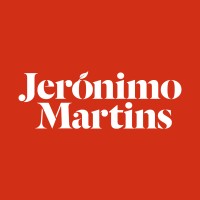
Jerónimo Martins
Founded in 1792, Jerónimo Martins is an international Group based in Portugal that operates in the food distribution and specialised retail sectors. Present in 6 countries and counting with more than 6 thousand stores, we are one of the oldest retailers in the world. We address the daily needs of
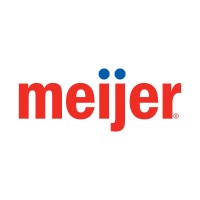
Meijer
It takes guts to start a business during the Great Depression. And it takes vision to keep it going. Our founder, Hendrik Meijer, opened Thrifty Acres in 1934. Almost thirty years later, his son, Fred, pioneered the world’s first ever supercenter – setting the table for who we are today: a multi-bil
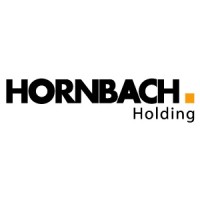
HORNBACH Holding
This is the official account of HORNBACH Holding AG & Co. KGaA (ISIN: DE0006083405; Symbol: HBH). HORNBACH is an independent, family-run European home improvement company which is listed on the Frankfurt Stock Exchange and part of the SDAX. It’s largest and most important subsidiary is HORNBACH Baum
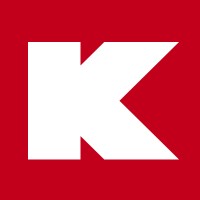
Kmart
Life is ridiculously awesome. That’s a bold statement. But hey, bold statements are our thing. So here’s another one: Kmart is ridiculously awesome, too. Know why? Because we work at it. We don’t do anything halfway. We go out and crush it. We’re about more than the products we sell. And more than
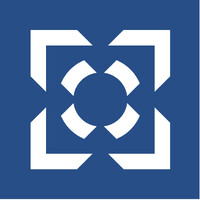
Beyond, Inc.
Beyond, Inc. (NYSE:BYON), based in Midvale, Utah, is an ecommerce expert with a singular focus: connecting consumers with products they love. Since its founding in 1999, Beyond has focused on developing technical expertise in asset-light online retailing and providing a simple and easy experience fo
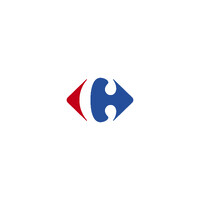
Carrefour
The Carrefour Group: one of the world’s leading retailers In 50 years, the Carrefour Group has become a world leader in the retail sector. The second largest retailer in the world and the largest in Europe, the Group now features four major grocery retail formats: hypermarkets, supermarkets, cash

Frequently Asked Questions (FAQ) on Cybersecurity Incidents
Harris Teeter CyberSecurity History Information
Total Incidents: According to Rankiteo, Harris Teeter has faced 0 incidents in the past.
Incident Types: As of the current reporting period, Harris Teeter has not encountered any cybersecurity incidents.
Total Financial Loss: The total financial loss from these incidents is estimated to be {total_financial_loss}.
Cybersecurity Posture: The company's overall cybersecurity posture is described as Founded in 1960 in North Carolina, Harris Teeter has been enriching the lives of our customers and our communities for decades. Today, Harris Teeter employs 36,000 valued associates and operates more than 250 stores and 70 fuel centers in seven states and the District of Columbia. In addition to our retail stores, we operate grocery, frozen food and perishable distribution centers in Greensboro and Indian Trail, North Carolina. From fresh, high-quality products to innovative offerings, Harris Teeter delivers an exceptional shopping experience at a great value, which is why Harris Teeter is proud to be ‘your neighborhood market.’ Harris Teeter is committed to not only supporting its communities by donating millions in food and funds to non-profits each year, but we also support our valued associates by offering comprehensive benefits, career growth opportunities and an incredible work culture. This commitment demonstrates Harris Teeter’s purpose to Enrich Lives: One Meal, One Family, One Associate and One Community at a time. Harris Teeter’s History: In 1936, W.T. Harris borrowed $1,500 to open the first Harris Food Store in Charlotte, North Carolina. The store was founded on three principles: high-quality products, clean stores and superior customer service. Harris was considered a pioneer of the grocery industry and opened the first supermarket that featured air-conditioning and stayed open until 9 p.m. on Friday nights. Just a few years later, Willis L. Teeter and his brother, Paul, opened their first Teeter’s Food Mart in Mooresville, North Carolina. On February 1, 1960, Harris Super Markets and Teeter’s Food Marts merged to form Harris Teeter Super Markets, Inc. with 15 stores in operation. Now with more than 250 stores and 36,000 valued associates, Harris Teeter is proud to provide an exceptional shopping experience to millions of customers each year..
Detection and Response: The company detects and responds to cybersecurity incidents through {description_of_detection_and_response_process}.
Incident Details
Incident 1: Ransomware Attack
Title: {Incident_Title}
Description: {Brief_description_of_the_incident}
Date Detected: {Detection_Date}
Date Publicly Disclosed: {Disclosure_Date}
Date Resolved: {Resolution_Date}
Type: {Type_of_Attack}
Attack Vector: {Attack_Vector}
Vulnerability Exploited: {Vulnerability}
Threat Actor: {Threat_Actor}
Motivation: {Motivation}
Incident 2: Data Breach
Title: {Incident_Title}
Description: {Brief_description_of_the_incident}
Date Detected: {Detection_Date}
Date Publicly Disclosed: {Disclosure_Date}
Date Resolved: {Resolution_Date}
Type: {Type_of_Attack}
Attack Vector: {Attack_Vector}
Vulnerability Exploited: {Vulnerability}
Threat Actor: {Threat_Actor}
Motivation: {Motivation}
Common Attack Types: As of now, the company has not encountered any reported incidents involving common cyberattacks.
Identification of Attack Vectors: The company identifies the attack vectors used in incidents through {description_of_identification_process}.
Impact of the Incidents
Incident 1: Ransomware Attack
Financial Loss: {Financial_Loss}
Data Compromised: {Data_Compromised}
Systems Affected: {Systems_Affected}
Downtime: {Downtime}
Operational Impact: {Operational_Impact}
Conversion Rate Impact: {Conversion_Rate_Impact}
Revenue Loss: {Revenue_Loss}
Customer Complaints: {Customer_Complaints}
Brand Reputation Impact: {Brand_Reputation_Impact}
Legal Liabilities: {Legal_Liabilities}
Identity Theft Risk: {Identity_Theft_Risk}
Payment Information Risk: {Payment_Information_Risk}
Incident 2: Data Breach
Financial Loss: {Financial_Loss}
Data Compromised: {Data_Compromised}
Systems Affected: {Systems_Affected}
Downtime: {Downtime}
Operational Impact: {Operational_Impact}
Conversion Rate Impact: {Conversion_Rate_Impact}
Revenue Loss: {Revenue_Loss}
Customer Complaints: {Customer_Complaints}
Brand Reputation Impact: {Brand_Reputation_Impact}
Legal Liabilities: {Legal_Liabilities}
Identity Theft Risk: {Identity_Theft_Risk}
Payment Information Risk: {Payment_Information_Risk}
Average Financial Loss: The average financial loss per incident is {average_financial_loss}.
Commonly Compromised Data Types: The types of data most commonly compromised in incidents are {list_of_commonly_compromised_data_types}.
Incident 1: Ransomware Attack
Entity Name: {Entity_Name}
Entity Type: {Entity_Type}
Industry: {Industry}
Location: {Location}
Size: {Size}
Customers Affected: {Customers_Affected}
Incident 2: Data Breach
Entity Name: {Entity_Name}
Entity Type: {Entity_Type}
Industry: {Industry}
Location: {Location}
Size: {Size}
Customers Affected: {Customers_Affected}
Response to the Incidents
Incident 1: Ransomware Attack
Incident Response Plan Activated: {Yes/No}
Third Party Assistance: {Yes/No}
Law Enforcement Notified: {Yes/No}
Containment Measures: {Containment_Measures}
Remediation Measures: {Remediation_Measures}
Recovery Measures: {Recovery_Measures}
Communication Strategy: {Communication_Strategy}
Adaptive Behavioral WAF: {Adaptive_Behavioral_WAF}
On-Demand Scrubbing Services: {On_Demand_Scrubbing_Services}
Network Segmentation: {Network_Segmentation}
Enhanced Monitoring: {Enhanced_Monitoring}
Incident 2: Data Breach
Incident Response Plan Activated: {Yes/No}
Third Party Assistance: {Yes/No}
Law Enforcement Notified: {Yes/No}
Containment Measures: {Containment_Measures}
Remediation Measures: {Remediation_Measures}
Recovery Measures: {Recovery_Measures}
Communication Strategy: {Communication_Strategy}
Adaptive Behavioral WAF: {Adaptive_Behavioral_WAF}
On-Demand Scrubbing Services: {On_Demand_Scrubbing_Services}
Network Segmentation: {Network_Segmentation}
Enhanced Monitoring: {Enhanced_Monitoring}
Incident Response Plan: The company's incident response plan is described as {description_of_incident_response_plan}.
Third-Party Assistance: The company involves third-party assistance in incident response through {description_of_third_party_involvement}.
Data Breach Information
Incident 2: Data Breach
Type of Data Compromised: {Type_of_Data}
Number of Records Exposed: {Number_of_Records}
Sensitivity of Data: {Sensitivity_of_Data}
Data Exfiltration: {Yes/No}
Data Encryption: {Yes/No}
File Types Exposed: {File_Types}
Personally Identifiable Information: {Yes/No}
Prevention of Data Exfiltration: The company takes the following measures to prevent data exfiltration: {description_of_prevention_measures}.
Handling of PII Incidents: The company handles incidents involving personally identifiable information (PII) through {description_of_handling_process}.
Ransomware Information
Incident 1: Ransomware Attack
Ransom Demanded: {Ransom_Amount}
Ransom Paid: {Ransom_Paid}
Ransomware Strain: {Ransomware_Strain}
Data Encryption: {Yes/No}
Data Exfiltration: {Yes/No}
Ransom Payment Policy: The company's policy on paying ransoms in ransomware incidents is described as {description_of_ransom_payment_policy}.
Data Recovery from Ransomware: The company recovers data encrypted by ransomware through {description_of_data_recovery_process}.
Regulatory Compliance
Incident 1: Ransomware Attack
Regulations Violated: {Regulations_Violated}
Fines Imposed: {Fines_Imposed}
Legal Actions: {Legal_Actions}
Regulatory Notifications: {Regulatory_Notifications}
Incident 2: Data Breach
Regulations Violated: {Regulations_Violated}
Fines Imposed: {Fines_Imposed}
Legal Actions: {Legal_Actions}
Regulatory Notifications: {Regulatory_Notifications}
Regulatory Frameworks: The company complies with the following regulatory frameworks regarding cybersecurity: {list_of_regulatory_frameworks}.
Ensuring Regulatory Compliance: The company ensures compliance with regulatory requirements through {description_of_compliance_measures}.
Lessons Learned and Recommendations
Incident 1: Ransomware Attack
Lessons Learned: {Lessons_Learned}
Incident 2: Data Breach
Lessons Learned: {Lessons_Learned}
Incident 1: Ransomware Attack
Recommendations: {Recommendations}
Incident 2: Data Breach
Recommendations: {Recommendations}
Key Lessons Learned: The key lessons learned from past incidents are {list_of_key_lessons_learned}.
Implemented Recommendations: The company has implemented the following recommendations to improve cybersecurity: {list_of_implemented_recommendations}.
References
Additional Resources: Stakeholders can find additional resources on cybersecurity best practices at {list_of_additional_resources}.
Investigation Status
Incident 1: Ransomware Attack
Investigation Status: {Investigation_Status}
Incident 2: Data Breach
Investigation Status: {Investigation_Status}
Communication of Investigation Status: The company communicates the status of incident investigations to stakeholders through {description_of_communication_process}.
Stakeholder and Customer Advisories
Incident 1: Ransomware Attack
Stakeholder Advisories: {Stakeholder_Advisories}
Customer Advisories: {Customer_Advisories}
Incident 2: Data Breach
Stakeholder Advisories: {Stakeholder_Advisories}
Customer Advisories: {Customer_Advisories}
Advisories Provided: The company provides the following advisories to stakeholders and customers following an incident: {description_of_advisories_provided}.
Initial Access Broker
Incident 1: Ransomware Attack
Entry Point: {Entry_Point}
Reconnaissance Period: {Reconnaissance_Period}
Backdoors Established: {Backdoors_Established}
High Value Targets: {High_Value_Targets}
Data Sold on Dark Web: {Yes/No}
Incident 2: Data Breach
Entry Point: {Entry_Point}
Reconnaissance Period: {Reconnaissance_Period}
Backdoors Established: {Backdoors_Established}
High Value Targets: {High_Value_Targets}
Data Sold on Dark Web: {Yes/No}
Monitoring and Mitigation of Initial Access Brokers: The company monitors and mitigates the activities of initial access brokers through {description_of_monitoring_and_mitigation_measures}.
Post-Incident Analysis
Incident 1: Ransomware Attack
Root Causes: {Root_Causes}
Corrective Actions: {Corrective_Actions}
Incident 2: Data Breach
Root Causes: {Root_Causes}
Corrective Actions: {Corrective_Actions}
Post-Incident Analysis Process: The company's process for conducting post-incident analysis is described as {description_of_post_incident_analysis_process}.
Corrective Actions Taken: The company has taken the following corrective actions based on post-incident analysis: {list_of_corrective_actions_taken}.
Additional Questions
General Information
Ransom Payment History: The company has {paid/not_paid} ransoms in the past.
Last Ransom Demanded: The amount of the last ransom demanded was {last_ransom_amount}.
Last Attacking Group: The attacking group in the last incident was {last_attacking_group}.
Incident Details
Most Recent Incident Detected: The most recent incident detected was on {most_recent_incident_detected_date}.
Most Recent Incident Publicly Disclosed: The most recent incident publicly disclosed was on {most_recent_incident_publicly_disclosed_date}.
Most Recent Incident Resolved: The most recent incident resolved was on {most_recent_incident_resolved_date}.
Impact of the Incidents
Highest Financial Loss: The highest financial loss from an incident was {highest_financial_loss}.
Most Significant Data Compromised: The most significant data compromised in an incident was {most_significant_data_compromised}.
Most Significant System Affected: The most significant system affected in an incident was {most_significant_system_affected}.
Response to the Incidents
Third-Party Assistance in Most Recent Incident: The third-party assistance involved in the most recent incident was {third_party_assistance_in_most_recent_incident}.
Containment Measures in Most Recent Incident: The containment measures taken in the most recent incident were {containment_measures_in_most_recent_incident}.
Data Breach Information
Most Sensitive Data Compromised: The most sensitive data compromised in a breach was {most_sensitive_data_compromised}.
Number of Records Exposed: The number of records exposed in the most significant breach was {number_of_records_exposed}.
Ransomware Information
Highest Ransom Demanded: The highest ransom demanded in a ransomware incident was {highest_ransom_demanded}.
Highest Ransom Paid: The highest ransom paid in a ransomware incident was {highest_ransom_paid}.
Regulatory Compliance
Highest Fine Imposed: The highest fine imposed for a regulatory violation was {highest_fine_imposed}.
Most Significant Legal Action: The most significant legal action taken for a regulatory violation was {most_significant_legal_action}.
Lessons Learned and Recommendations
Most Significant Lesson Learned: The most significant lesson learned from past incidents was {most_significant_lesson_learned}.
Most Significant Recommendation Implemented: The most significant recommendation implemented to improve cybersecurity was {most_significant_recommendation_implemented}.
References
Most Recent Source: The most recent source of information about an incident is {most_recent_source}.
Most Recent URL for Additional Resources: The most recent URL for additional resources on cybersecurity best practices is {most_recent_url}.
Investigation Status
Current Status of Most Recent Investigation: The current status of the most recent investigation is {current_status_of_most_recent_investigation}.
Stakeholder and Customer Advisories
Most Recent Stakeholder Advisory: The most recent stakeholder advisory issued was {most_recent_stakeholder_advisory}.
Most Recent Customer Advisory: The most recent customer advisory issued was {most_recent_customer_advisory}.
Initial Access Broker
Most Recent Entry Point: The most recent entry point used by an initial access broker was {most_recent_entry_point}.
Most Recent Reconnaissance Period: The most recent reconnaissance period for an incident was {most_recent_reconnaissance_period}.
Post-Incident Analysis
Most Significant Root Cause: The most significant root cause identified in post-incident analysis was {most_significant_root_cause}.
Most Significant Corrective Action: The most significant corrective action taken based on post-incident analysis was {most_significant_corrective_action}.
What Do We Measure?
















Every week, Rankiteo analyzes billions of signals to give organizations a sharper, faster view of emerging risks. With deeper, more actionable intelligence at their fingertips, security teams can outpace threat actors, respond instantly to Zero-Day attacks, and dramatically shrink their risk exposure window.
These are some of the factors we use to calculate the overall score:
Identify exposed access points, detect misconfigured SSL certificates, and uncover vulnerabilities across the network infrastructure.
Gain visibility into the software components used within an organization to detect vulnerabilities, manage risk, and ensure supply chain security.
Monitor and manage all IT assets and their configurations to ensure accurate, real-time visibility across the company's technology environment.
Leverage real-time insights on active threats, malware campaigns, and emerging vulnerabilities to proactively defend against evolving cyberattacks.




